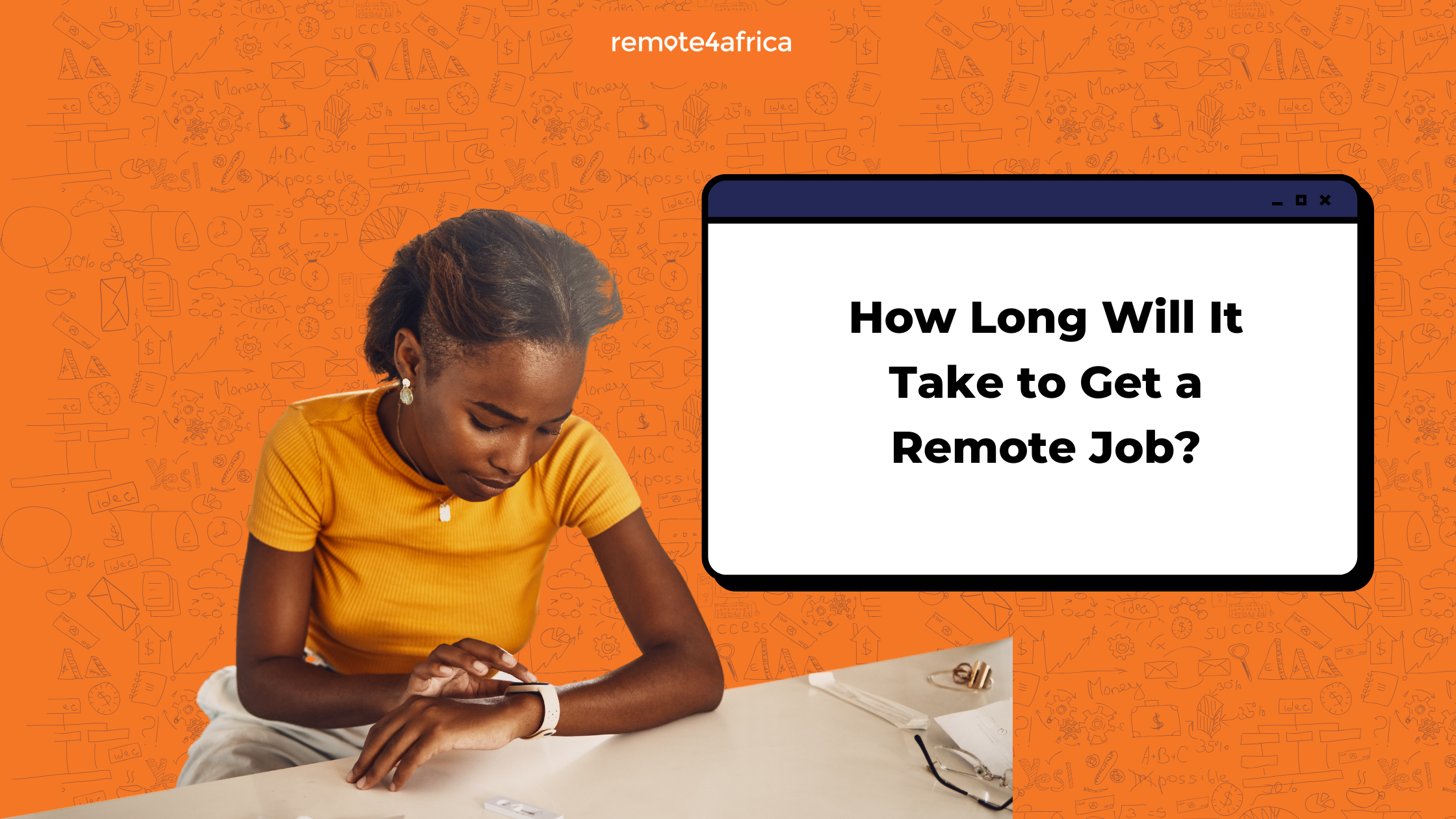How Long Will It Take to Get a Remote Job?
Remember, securing a remote job can take time, but persistence pays off. Stay adaptable, proactive, and keep refining your approach. Your dream remote job may be just around the corner.

Why does it take so long to get a remote job?
Are you among the aspiring remote workers wondering, 'How long would it take to land a remote job?' Well, the journey to securing your first remote position isn't a one-size-fits-all scenario. It's a nuanced process influenced by various factors. Some find their first remote gig within weeks, while others might wait for months. On average, according to Topresume, it takes between 5 to 6 months to find a job, whether remote or onsite, but remember, this statistic is just an average; your experience may differ. We wrote some reasons you might be sabotaging your job search.
So, why does it seem to take so long to snag a remote job? The answer lies in the surge of interest in remote work. Here's how this influx impacts your quest for remote employment:
1. Increased Competition: The popularity of remote work means more people vying for remote job positions, resulting in heightened competition.
2. Skill Requirements: Remote roles often demand specific skills related to remote collaboration and communication.
3. Preference for Remote Experience: Some employers favor candidates with prior remote work experience, believing them better equipped to handle remote challenges.
How long would it take to get a remote job?
The time it takes to land a remote job can vary significantly based on several factors:
1. Job Market Demand: Industries like tech, digital marketing, and customer service often have high demand for remote workers, potentially leading to quicker placements.
2. Skill Level and Experience: Those with in-demand skills and relevant remote experience may find job hunting easier.
3. Networking and Connections: Leveraging your professional network can speed up your job search by uncovering hidden opportunities.
4. Job Search Strategy: How and where you look for remote roles, and how well you tailor your applications, plays a crucial role.
5. Geographic Considerations: Your location can impact the availability of remote job opportunities.
6. Personal Circumstances: Your financial stability, flexibility in job requirements, and willingness to relocate can influence the timeline.
How to get a remote job fast?
Now, itching to land that remote job fast? Here are ten steps to jumpstart your journey:
1. Update Your Resume and LinkedIn Profile: Highlight your remote work skills and experience.
2. Search Remote Job Boards: Platforms like Remote4Africa cater specifically to remote roles.
3. Network: Tap into your connections; referrals can be golden.
4. Use Social Media: Follow companies offering remote positions on LinkedIn and Twitter.
5. Attend Virtual Events: Online networking can open doors.
6. Consider Freelancing: Platforms like Upwork offer remote freelance opportunities.
7. Be Proactive: Reach out to companies directly to inquire about remote work.
8. Prepare for Interviews: Showcase your remote work readiness.
9. Focus on Remote-Friendly Industries: Tech and digital marketing sectors often embrace remote work.
10. Stay Persistent: Keep applying and networking; consistency is key.
Remember, securing a remote job can take time, but persistence pays off. Stay adaptable, proactive, and keep refining your approach. Your dream remote job may be just around the corner.
